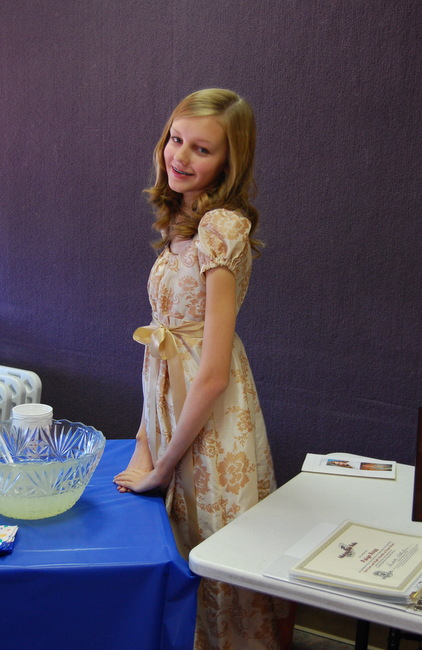We were at the community library meeting room and we were celebrating a milestone for Paige and another boy who had just finished 8th grade in home school. Friends gathered to watch Paige play the piano and the boy sing. It was an exciting but vulnerable day for me, showing the efforts we had made in home education to the public. We invited friends and had cake and punch. Paige and the boy had each prepared an elaborate display of their school experiences and talents.
There were probably 25 people in attendance, and a guest approached me after the program during refreshments. She was in her late 60’s and introduced herself by saying her name and that she was a supporter of public school.
Okay, I thought. Here comes the conversation I had dreaded, the conversation that I feared would come in a public place. I had avoided most stores and restaurants with my children during school hours for 9 years so this wouldn’t happen. I knew that I was going to be accused of neglect or selfishness or coddling, by a stranger. I was literally backed up against a wall as she told me what she thought of home education.
She voiced her ideas. I responded in a calm way. We both came away from the conversation with something to think about. I was devastated by what she said to me, even if it wasn’t a new argument. I think it was just the wrong place for her to initiate such a conversation.
I felt numb for weeks after this. Her words hurt because she believed that I was “anti-community.” I had always believed that raising children and teaching them well was the best way to build a community. She didn’t know me. She didn’t know that I communicated with 70 families over a large area to see that our children were out of the house doing PE, academic activities, art classes, field trips, and service projects. She didn’t know that I was a volunteer science teacher and that we maintained a community pond. She didn’t know that I ran a Cub Scout program for children from any school background. Her words hurt because I was feeling vulnerable when she said them. Her words hurt because she voiced her concern to me in public. What should have been a celebratory day became one of the worst days of my life. It’s taken me many years to be able to write about it.
As we drove home from the event, the song, “Don’t Rain on My Parade” from Funny Girl came to my mind. It became my theme song when I dealt with criticism. I’ve played it many times over the years with the volume turned up high.
For eleven consecutive years I was an unconventional parent and home schooled my kids. Then I took a break and picked it up again for Mark in elementary school. It was okay with me if people disagree with my decisions. Through these years of being unconventional, I have learned that even when you disagree with someone, it’s possible offer untainted compliments and support.
People often told me horror stories about home school families or would begin a compliment about my child with the phrase, “I don’t agree with home schooling, but…” When this happened, it was hard for me to find the compliment clothed in criticism. I learned not to bring up home education to most people I knew. It was just too complicated.
To show support, some people offered to teach my kids a skill such as painting or foreign language, withholding any hint of disapproval. I took up anyone’s offer to help. I was very open to learning experiences outside the home. Some people would give simple compliments, such as, “Your son was polite to me today. Thank you for training him so well,” or, “I noticed you and your kids working on the community pond. Thank you.” I didn’t want them to tell me that home schooling was good or bad. I wanted to hear that my kids were good.
As much as I love compliments, I learned to function without the approval of others during those years. During this time of being unconventional, I learned that there is more than one way to raise a child well. I learned to respect different methods of teaching, raising children, and approaching a problem. I learned to trust the inspiration and direction from God that I received. Over the years I followed the thoughts that came to my mind that were not my own, including the phrase that came to my mind one day, “Send your children to public school this year,” followed by other specific instructions.
The lessons I learned during the home schooling years can’t be numbered, and the lesson about tolerance is an important one. I learned that it’s important to show respect and support for earnest efforts in parenting. I try to do this by focusing on positive things and giving pure compliments and encouragement, untainted by disapproval. If all I can say to a parent is, “I love your children,” that is enough. And if someone is having a celebration for an accomplishment or milestone, my goal is to never rain on someone’s parade.
